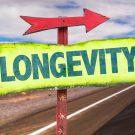A Cause of Sundowners and Psychosis
Generating a theory of psychotic episodes and epilepsy
After watching a couple of episodes of medical mystery shows on TV, I developed a theory that episodic seizures or dissociative behavior might have to do with parts of the brain going into a hyperflammatory state. In the show Diagnosis, little Sadie developed frequent seizures after an infection. And in another show, several sweet children turned into periodic monsters after another infection.
This theory made sense to me because there is evidence that inflammation is being implicated in an increasing number of psychiatric conditions. Also while low level inflammation helps cells repair, once inflammation gets too high, it can get very destructive for the surrounding tissue.
I wondered if I would get a chance to test my theory with my clients.
Read MoreHer Secret to Reverse The Aging Process
Getting Older Fast
When I first met Diane seven years ago, I was attracted to her warmth and her engaging stories. She is an animal communicator, and practices Healing Touch, and I keep telling her she should write a book with all the interesting stories she tells! But I was concerned for her. She has several autoimmune diseases. She struggled with walking more than a few yards due to pain and difficulty breathing. She was taking pain medications three times a day. She seemed old for her age, and she was in her late 50’s.
Her Secret to Reverse the Aging Process

Diane when I first met her. She was working with my cat.
Then a couple of years ago, after not seeing each other for months, we got together for dinner, and I was stunned by her transformation.
Read MoreShould you exercise to prevent or reverse dementia?
Should we exercise to prevent dementia?
The answer to the latest meta analysis is showing that the data is inconclusive!
Does that mean we shouldn’t bother to exercise? No! There are a lot benefits to exercise.
What are the benefits of exercise to the brain?
Read MoreThe Most Important Secret to Healthy Aging
It is not how old you are but how you are old.
As a Neuroscientist and Epidemiologist I spent over a decade researching the underlying causes of Alzheimer’s disease. But after working with thousands of clients, I now realize that the one single and most important thing you need to prevent aging and cognitive decline isn’t about your habits, your education or your exposures. It is your willingness to release your negative beliefs about aging.
When I talk to the elderly about how Alzheimer’s is reversible, and how there are so many things you can do to keep your brain young, I regularly hear, “Oh…I’m too old for that”. Do you notice the problem with this belief? I do. It indicates to me that the person is saying that they are no longer worth the effort. And that distresses me terribly because I know that this is precisely how they will become old, by giving up.
But what happens if you don’t believe you have to get old?
Read MoreDeveloping the Ability to Remember Names
I used to struggle to remember names. I’d have to ask people to repeat their names often, and would often give up to avoid the shame of not remembering. After releasing subconscious barriers that got in the way of my ability to remember names, I led a Meetup hike. There were 10 new people present. After introducing ourselves, I went around the circle
Read MoreHow to Talk to Someone with Alzheimer’s Disease
Have you ever tried to talk to someone with Alzheimer’s disease and ended up feeling awkward or frustrated? Communicating with someone with Alzheimer’s disease can be challenging especially if the diseases has progressed to advanced stages.
Alzheimer’s disease usually attacks the brain in a way that it makes it difficult for the affected person to communicate effectively as well as remember past events. This is challenging especially for caregivers because they have to adjust the way they communicate to their loved ones. The good news is that there are effective ways for dementia caregivers to communicate with loved ones impacted by this disease, as discussed below.
Read More








